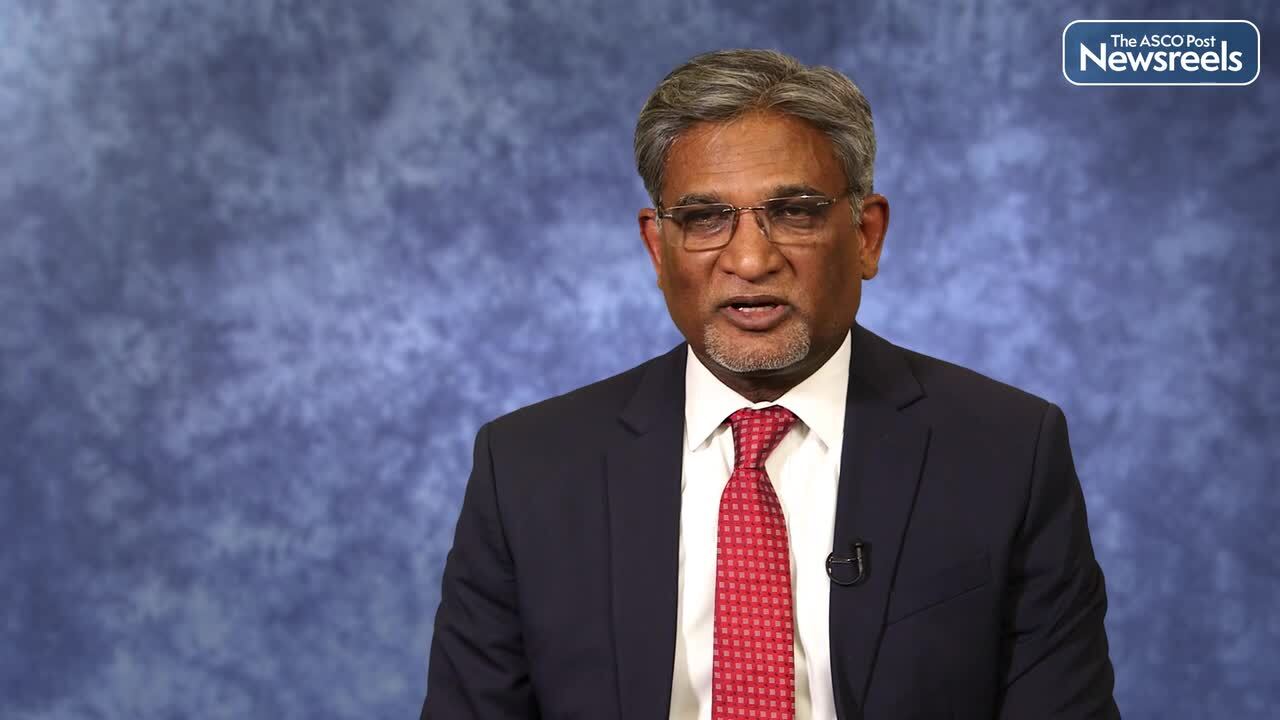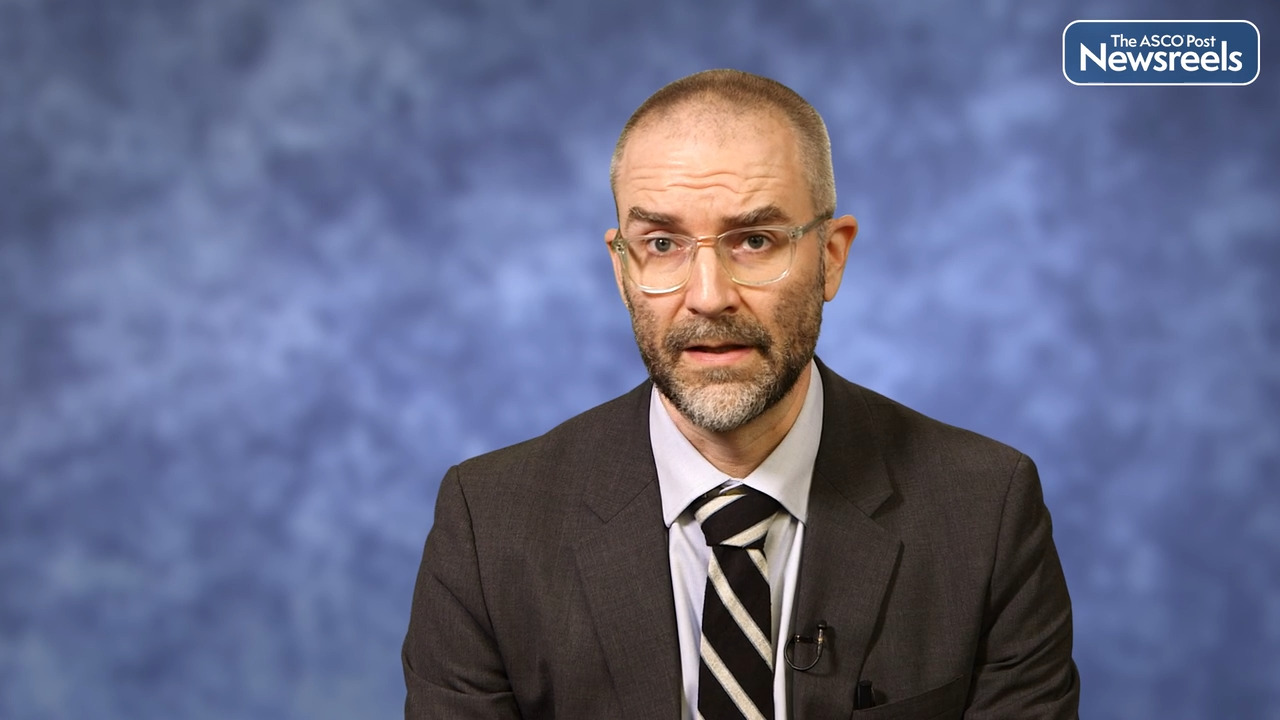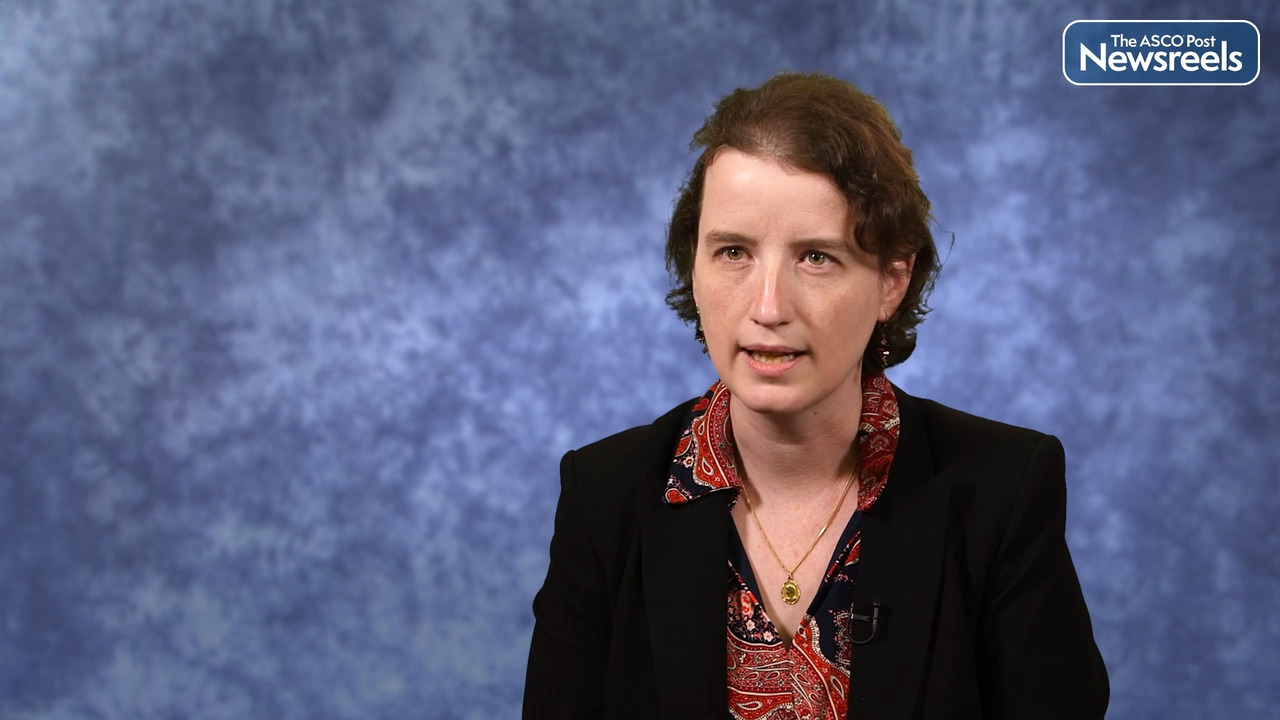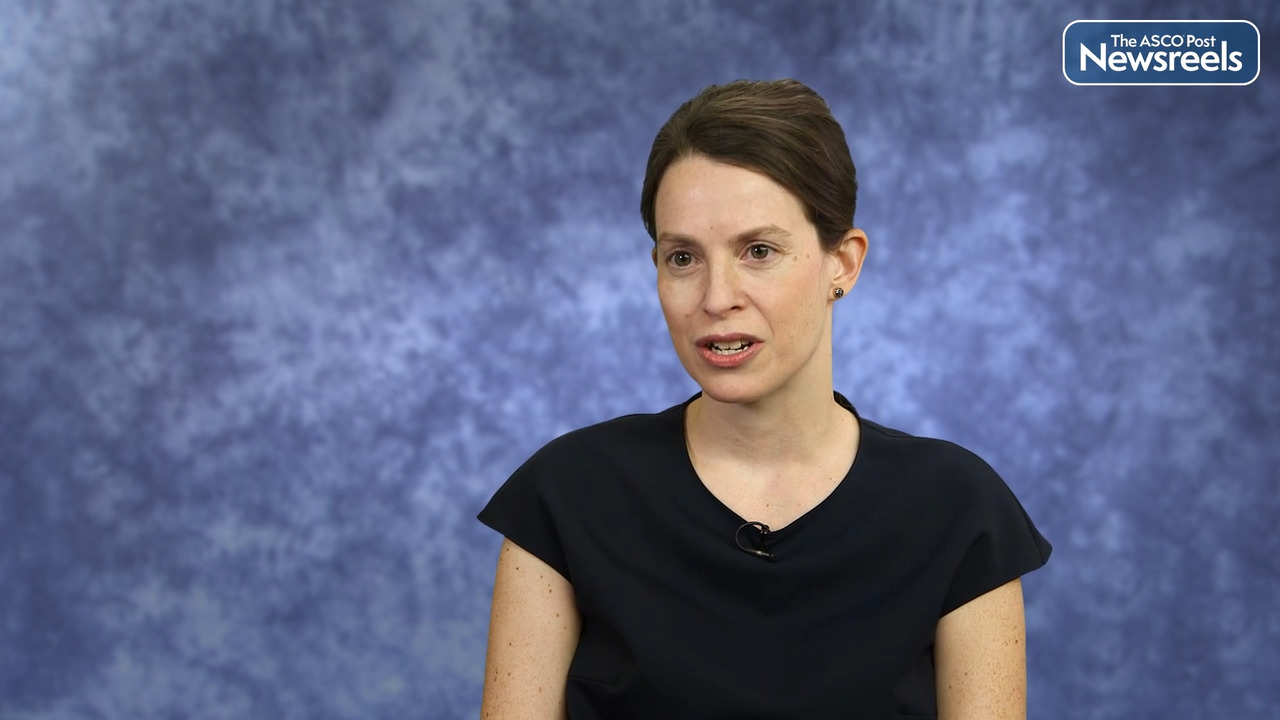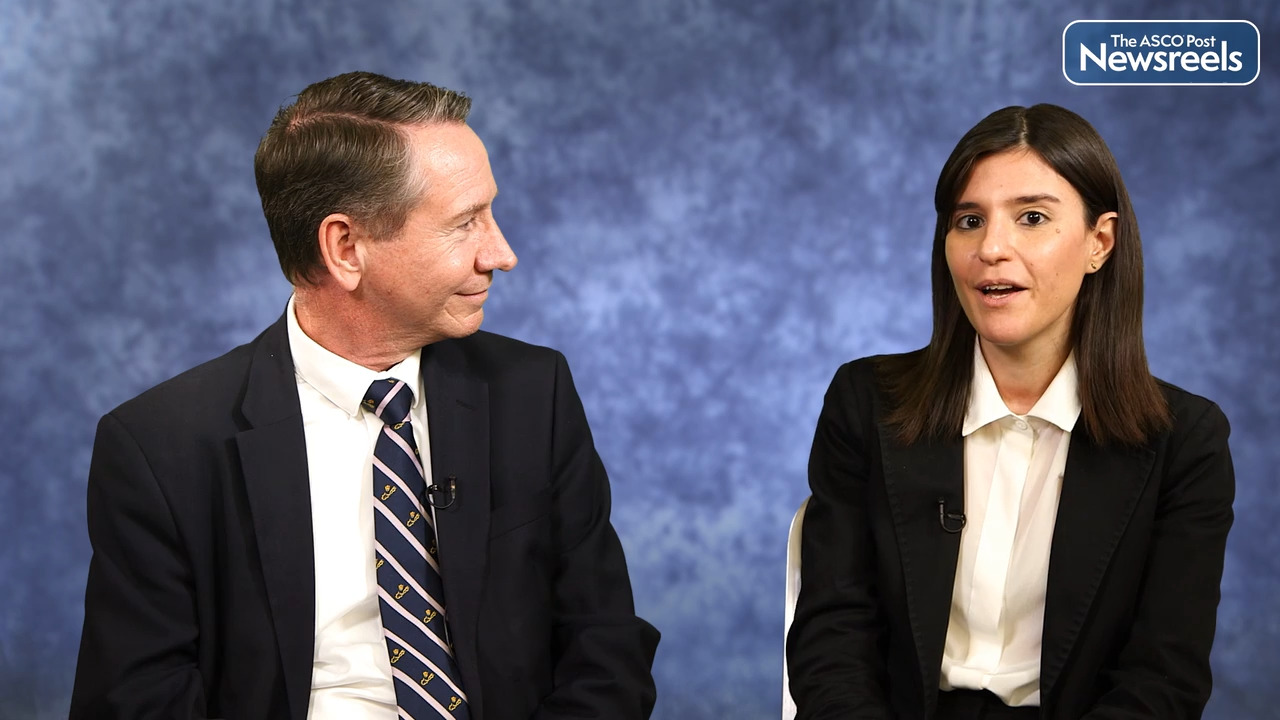Francesco Maura, MD, on Genomic Determinants of Resistance in Newly Diagnosed Multiple Myeloma Treated With Targeted Immunotherapy
2022 ASH Annual Meeting and Exposition
Francesco Maura, MD, of the University of Miami, Sylvester Comprehensive Cancer Center, discusses his team’s findings in which they defined a comprehensive catalogue of genomic determinants of response to DKRd (carfilzomib, lenalidomide, dexamethasone) in newly diagnosed multiple myeloma. The researchers have identified a number of new genomic alterations that explain resistance to the agents currently used in combination regimens (Abstract 470).
Transcript
Disclaimer: This video transcript has not been proofread or edited and may contain errors.
The study was, the purpose was to identify mechanism or resistance to a combination of drugs called quadruplets with daratumumab, carfilzomib, Revlimid and dexamethasone for newly diagnosed multiple myeloma. The study was published two years ago by Ola Landgren [inaudible 00:00:21] Oncology as a clinical trial. This study is the correlative based on the genomics, so we sequence for genome sequencing of all the available samples. The main result is that we discover several known and new genomic features associated with poor or worse outcome and failure to achieve sustainable negativity. These features tend to cocoon together.
So what we identify is a complex network that require more cases to be really deciphered. But that's an important step because it highlights how the technology we use that is whole genome sequencing is probably the way to go to re-understand the DNA based mechanism of resistance for multiple myeloma. But the next steps are in expanding the sample size, working with the community with additional trials where the quadruplets combination with daratumumab plus bortezomib inhibitor plus immunomodulatory agent and corticosteroids were used for newly diagnosed multiple myeloma patients. Try to see also if the same mechanism are involved in a relapse settings because patients get also these drugs in a relapse setting where the disease transform or evolve after previous therapy. And using all this information, once we have a large number of cases, we can of course develop prediction to identify patients that can benefit and patients where they cannot benefit from these regimens. And so for the one that don't, we can identify alternative strategies.
Related Videos
The ASCO Post Staff
Anand P. Jillella, MD, of Georgia Cancer Center at Augusta University, discusses results from the ECOG-ACRIN EA9131 Trial, which showed that using a simplified treatment algorithm and management recommendations made by a group of specialists, resulted in a dramatic improvement in 1-year survival of patients with acute promyelocytic leukemia (Abstract 421).
The ASCO Post Staff
Joseph Schroers-Martin, MD, of Stanford University, discusses immunogenomic features reflecting divergent biology in posttransplant lymphoproliferative disorders (PTLD). These include evidence of mismatch repair defects in Epstein-Barr virus–positive PTLD, tumor microenvironment depletion, and MYC pathway enrichment in certain patients (Abstract 72).
The ASCO Post Staff
Eileen M. Boyle, MD, PhD, of the Perlmutter Cancer Center, NYU Langone Health, discusses Fc-mediated antibody effector function, inflammation resolution, and oligoclonality and their role in predicting sustained measurable residual disease negativity in patients with newly diagnosed multiple myeloma who were treated with immunotherapy regimens. For the first time, an analysis of T-cell receptors shows that oligoclonal profiles seen on treatment may influence the fitness of the immune response (Abstract 100).
The ASCO Post Staff
Julie Côté, MD, of CHU de Québec–Université Laval, discusses findings from the Canadian Myeloma Research Group database, which showed that integrating bortezomib and lenalidomide into the autologous stem cell transplant (ASCT) sequence produces a median overall survival rate ≥ 10 years in most patients with newly diagnosed multiple myeloma. These observations highlight the contribution of post-ASCT maintenance, particularly lenalidomide given until disease progression, when used in multiple patient groups including those with and without high risk, as well as those requiring a second induction regimen (Abstract 117).
The ASCO Post Staff
Stephen M. Ansell, MD, PhD, and Patrizia Mondello, MD, PhD, both of the Mayo Clinic, discuss the 20% of patients with follicular lymphoma (FL) who relapse early and experience a poor prognosis. The researchers found that FLs with high levels of IRF4 expression are associated with a suppressive tumor microenvironment, and selective IRF4 silencing restores antilymphoma T-cell immunity. Further investigation is warranted to identify the mechanisms by which IRF4 controls tumor immunity to develop precision therapies for this population (Abstract 70).
